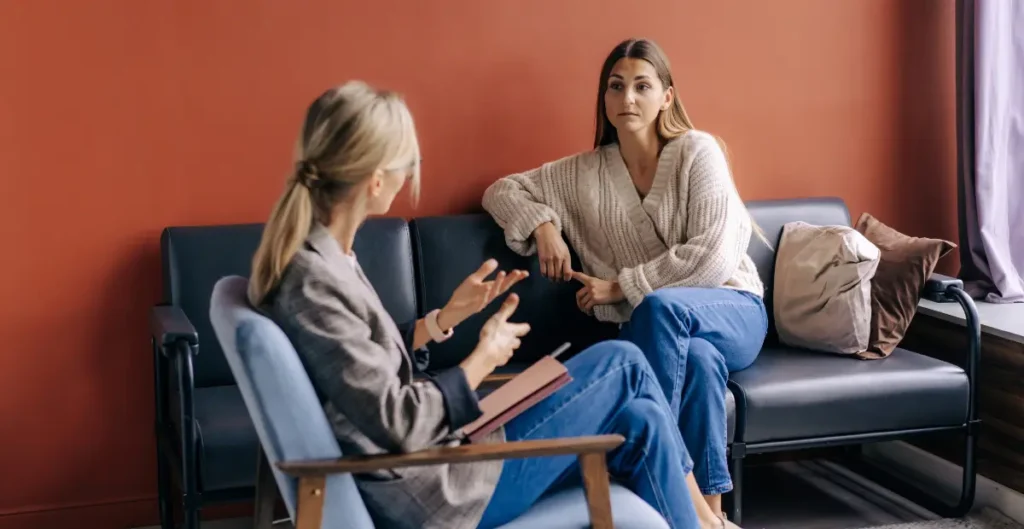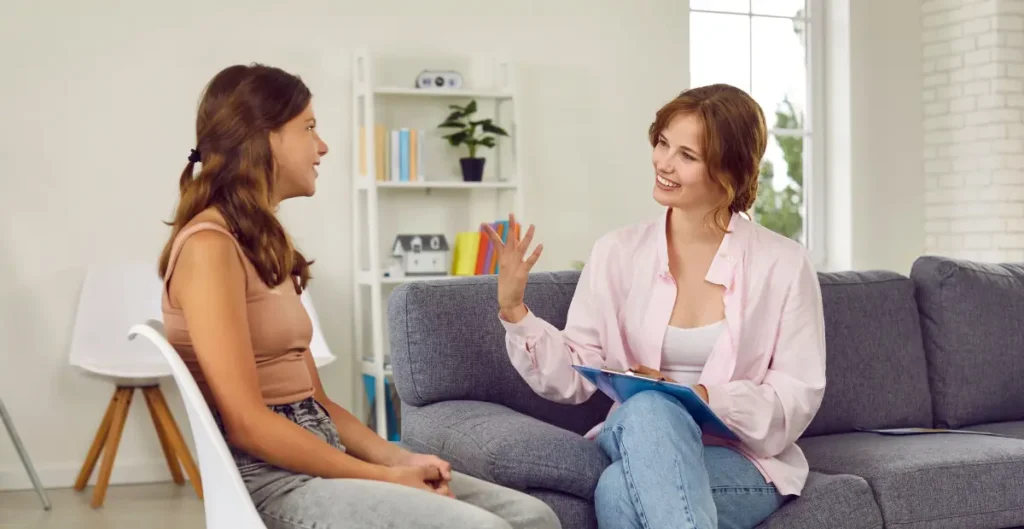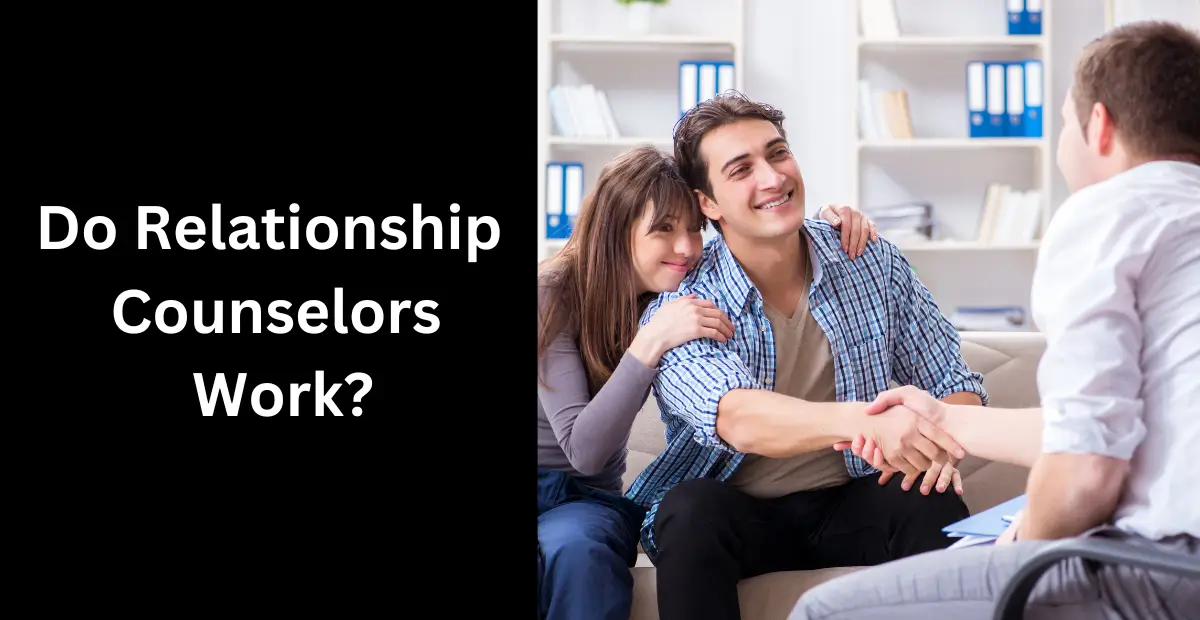Relationships are an integral part of our lives. They bring us love, support, and companionship but they also come with their own set of challenges. When we enter into a relationship, whether it be romantic, familial, or platonic, we hope for it to be filled with happiness and understanding. However, the reality is that every relationship goes through its ups and downs, and sometimes external help is needed to navigate through these challenges. This is where relationship counselors come in.
Relationship counseling, also known as couples therapy or marriage counseling, is a form of psychotherapy that aims to help couples improve their communication, resolve conflicts, and strengthen their overall relationship. But the question remains, do relationship counselors really work? In this blog post, we will explore the effectiveness of therapy in relationships and whether or not it is worth investing in.
Understanding Relationship Counseling
Before delving into the effectiveness of relationship counseling, it is important to understand what it entails. Typically, a relationship counselor works with couples who are facing challenges in their relationship. These challenges can vary from communication issues, infidelity, financial problems, to parenting disagreements.
The goal of relationship counseling is to provide a safe and supportive space for couples to express their thoughts and feelings. The counselor acts as a mediator and helps couples identify the root of their problems and develop healthy ways of communicating and resolving conflicts. Relationship counselors also equip couples with tools and techniques to improve their relationship and deepen their connection.
The Role of Relationship Counselors
Relationship counselors play a crucial role in helping couples navigate through difficult times in their relationship. They provide a neutral and non-judgmental perspective, allowing both parties to feel heard and understood. This is especially important when emotions are running high and communication has broken down between the couple.
Moreover, relationship counselors are trained professionals who have the knowledge and expertise to identify patterns of behavior that may be contributing to the problems in a relationship. They can also help couples address underlying issues such as unresolved trauma, trust issues, or unmet needs.
In addition, relationship counselors act as guides for couples, helping them develop effective communication skills and strategies to improve their relationship. These skills not only benefit the couple in their current relationship but also in any future relationships they may have.
Misconceptions About Relationship Counselors
There are several common misconceptions about relationship counselors that may prevent some couples from seeking therapy. These include:
- Only for serious problems: Many people believe that therapy is only necessary when a relationship is on the brink of ending. However, seeking counseling early on can prevent problems from escalating.
- One partner is “to blame”: It’s a common misconception that one partner must be at fault for the issues in a relationship. In reality, therapy focuses on helping both partners improve their communication and relationship dynamics.
- Only for married couples: Relationship counseling is not just for married couples. It can benefit any type of relationship, whether it be romantic partnerships or family relationships.
- The therapist will tell us what to do: A therapist’s role is not to give orders or tell a couple what to do. Instead, they provide guidance and support as the couple works through their own issues.
- It’s too expensive: While therapy can be an investment, there are often low-cost options available such as community mental health centers or sliding scale fees based on income. Additionally, the benefits of therapy may outweigh the cost in the long run.
It’s important to address and dispel these misconceptions in order for more couples to feel comfortable seeking relationship counseling. With an open mind and a willingness to work on their relationship, therapy can be a valuable tool for any couple looking to improve their connection and strengthen their bond.
Research on the Effectiveness of Relationship Counseling

Multiple studies have been conducted to determine the effectiveness of relationship counseling. One meta-analysis, which looked at 325 studies on couples therapy, found that couples who participated in therapy showed significant improvements in their relationship and individual well-being . They reported increased satisfaction, better communication, and reduced relationship distress after therapy.
Another study found that couples who received relationship counseling showed higher levels of commitment and intimacy in their relationships compared to those who did not receive any therapy. This indicates that relationship counseling not only helps address current issues but also strengthens the overall bond between partners.
Moreover, a review of various studies on relationship counseling found that couples who received therapy showed long-term improvements in their communication, relationship satisfaction, and conflict resolution skills.
While these studies do suggest that relationship counseling can be beneficial for couples, it is important to note that not all relationships will show the same level of improvement. The effectiveness of therapy also depends on the willingness and commitment of both partners to actively participate in the sessions.
The Benefits of Relationship Counseling
Despite its limitations, relationship counseling can offer numerous benefits for couples who are struggling in their relationship. Some of these benefits include:
- Improved communication: Relationship counseling equips couples with effective communication skills that allow them to express their thoughts and feelings in a healthy manner.
- Resolving conflicts: With the help of a counselor, couples learn how to address and resolve conflicts in a constructive way, rather than resorting to unhealthy behaviors.
- Strengthened bond: As couples work through their issues together, they often experience a deeper level of emotional connection and understanding in their relationship.
- Better understanding of each other: Through counseling, couples gain insight into their own behavior and the behavior of their partner. This can lead to greater empathy and understanding between the two.
- Addressing underlying issues: Relationship counseling can help couples address deeper, underlying issues that may be impacting their relationship, such as past trauma or unmet needs.
- Prevention of future problems: By equipping couples with tools and techniques to improve their relationship, counseling can help prevent future conflicts from arising.
Overall, the benefits of relationship counseling extend beyond just improving the current relationship. It can also have a positive impact on the individuals within the relationship and their future relationships.
Limitations of Relationship Counseling
While relationship counseling has shown to be effective in many cases, it is not a one-size-fits-all solution. Some couples may not see significant improvements in their relationship even after attending therapy. This could be due to various factors such as the severity of underlying issues, lack of commitment from both partners, or unrealistic expectations.
Moreover, relationship counseling can also be expensive and time-consuming. It requires a significant investment of both time and money, which may not be feasible for everyone.
Another limitation of relationship counseling is that it may not work for all types of relationships. For example, couples who are dealing with physical or emotional abuse may require more specialized forms of therapy to address their issues.
Alternatives to Traditional Relationship Counseling
If traditional relationship counseling does not seem like the right fit for you and your partner, there are alternative options available. Online therapy platforms have become increasingly popular in recent years, offering couples a more convenient and flexible way to access therapy.
Moreover, self-help resources such as books, podcasts, and workshops on relationships can also be beneficial for couples looking to improve their relationship without the commitment of attending regular therapy sessions.
How to Choose the Best Relationship Counselor

Choosing the right relationship counselor is crucial in getting the most out of therapy. Here are some tips to help you find a suitable therapist for you and your partner:
- Look for a qualified and licensed therapist: Make sure the counselor you choose has appropriate training and credentials in couples therapy.
- Consider their approach: Different therapists may have different approaches to couples therapy. Consider what approach would be most suitable for you and your partner’s needs.
- Read reviews and ask for recommendations: Look up reviews of the therapist or ask friends or family members for recommendations.
- Evaluate their availability and fees: Make sure the counselor’s schedule aligns with yours, and consider the cost of therapy as well.
- Schedule a consultation: Many therapists offer a free initial consultation to assess if they are a good fit for you and your partner. Take advantage of this to get a feel for their style and approach.
Remember, it’s important to find a therapist who makes both you and your partner feel comfortable and understood. Don’t be afraid to try out different counselors until you find the right fit. With the right therapist, relationship counseling can be a valuable tool in improving your relationship and overall well-being. So, take your time and choose wisely!
In Conclusion
Relationship counseling can be a valuable resource for couples facing challenges in their relationship. It provides a safe and supportive space for partners to work through their issues and develop skills to strengthen their bond. However, it is important to understand that therapy may not work for every couple, and there are alternative options available if traditional counseling does not seem suitable.
Ultimately, the effectiveness of relationship counseling depends on the willingness and commitment of both partners to actively participate in the process. If both individuals are dedicated to improving their relationship, therapy can be a powerful tool in helping them achieve a healthier and happier partnership.
